An endangered language in the North Carolina mountains: How pride keeps it alive
Editor’s note: The Eastern Band of Cherokee Indians, along with two other federally-recognized tribes of Cherokee people, declared in 2019 a state of emergency for the nation’s language. The United Nations Educational, Scientific, and Cultural Organization (UNESCO) considers the language to be endangered.
I first went to Cherokee, N.C., in June. It’s a three hour drive from the congested (and at the time, steamy) city of Charlotte.
By nightfall, I found myself driving down a twisted road, intensely forested and mountainous. I made camp with my $40 tent from the nearest vintage store.
I had little idea on what this story would be about, but planned to attend the weekend’s Eastern Band of Cherokee Indians’ 4th of July Powwow. I was curious as to why a nation of people — pushed out and systematically killed by the group of people who created the holiday — were celebrating the Fourth of July.
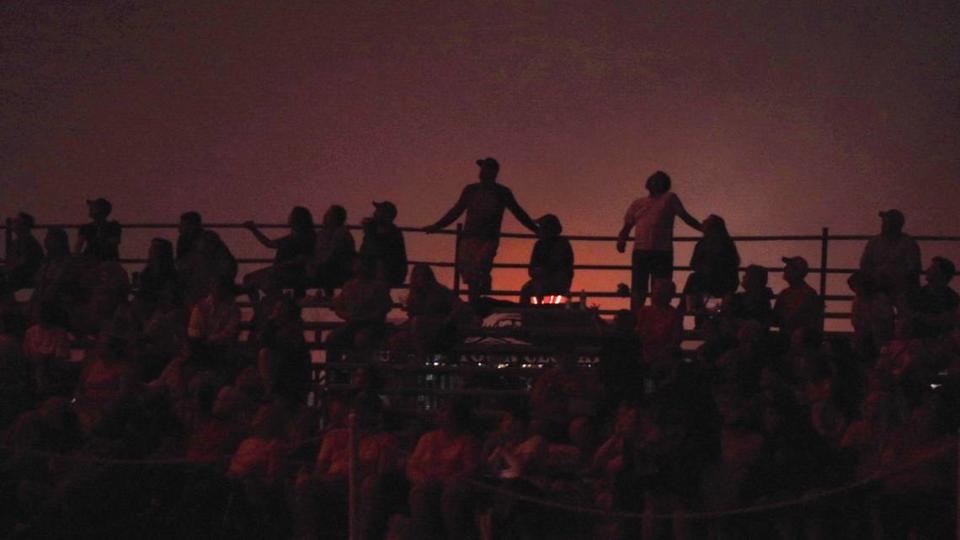
As it would turn out to be, my story isn’t about that.
Those in Cherokee treated the Fourth of July as their own holiday, much like any American small town would celebrate, with festivities, food, and fireworks. To my understanding, the holiday in Cherokee was an excuse to come together, to see loved ones and celebrate, with festivities centered on tribal culture.
The story I soon discovered was much more pressing and deeper about the very essence of Eastern Cherokee culture: Its language.
“From what I understand, we have about 150 fluent speakers left,” says John Grant Jr., a Cultural Ambassador for the EBCI.
He told me about the struggling Eastern Dialect of the Cherokee language. I met Grant as he tended one of the many booths inside the Powwow.
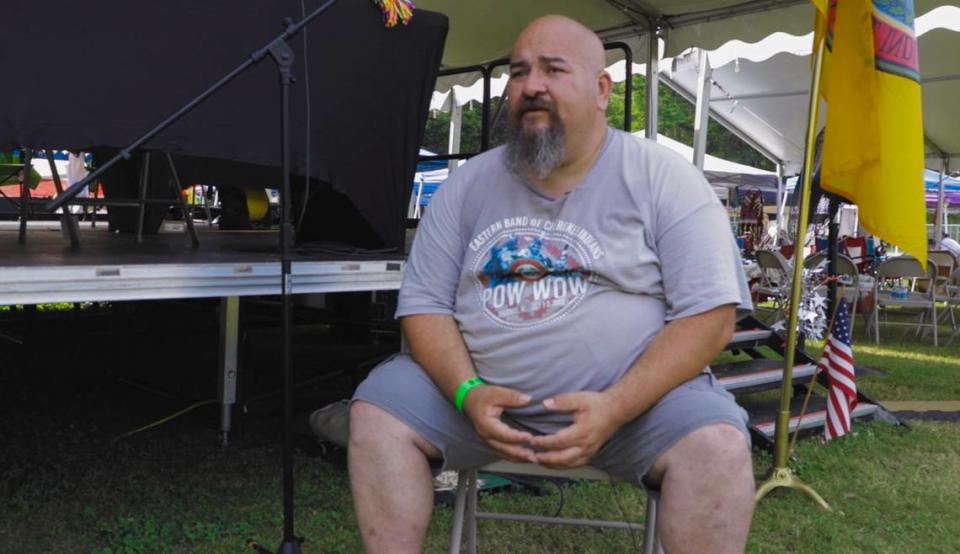
Powwow in Cherokee
The intense late afternoon sun was replaced by dark storm clouds above the Powwow, putting a delay on the first dances of the night. This didn’t bother anyone for very long, and as soon as the rain stopped and smokey mist began to rise off the surrounding mountains, the Powwow continued.
Jingle, Traditional, Grass, and Fancy Dancing styles all carried on without a hitch.
Dancers moved rhythmically while the drummers provided the pulse.
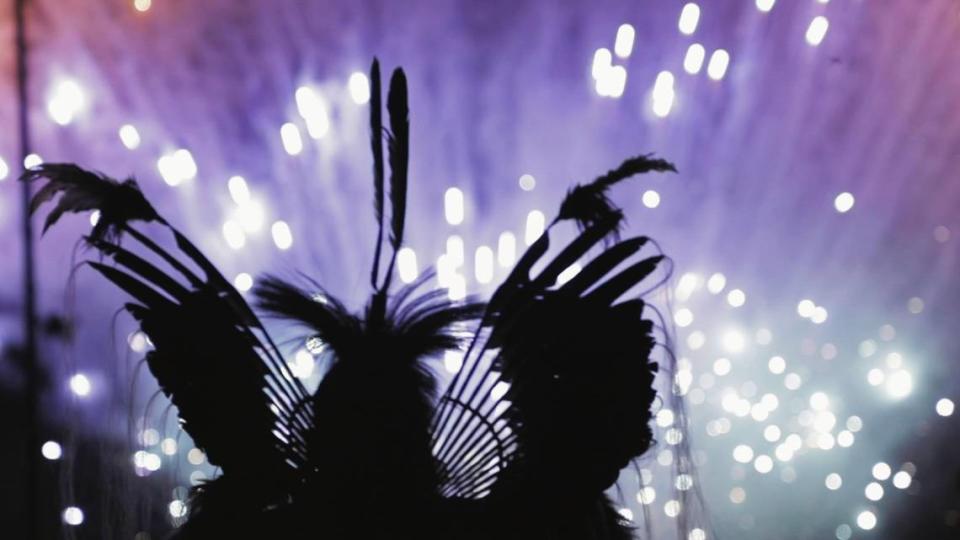
The Powwow paused again around 9:30 pm for roughly 23 minutes. Then everyone at the Powwow froze in place, gazing at the sky for the best fireworks show on the Qualla Boundary.
I knew the language was in jeopardy, but who is trying to save it?
Cherokee Indian language revival
Accompanied by more rain the next morning, I arrived at the Cherokee Speaker Gathering, which takes place at the Kituwah Preservation Program’s adult Cherokee education center. After gaining permission from Cherokee Speaker Council members, it was a green light to film. Soon, speakers from fluent to beginners began to gather.
Everyone lined up to get a plate of mashed potatoes, turkey, green beans, and a host of other delectable foods.
Communication commenced in Cherokee, leaving me in the dark as to what most people were saying, but I knew I was in the right place to continue the story.
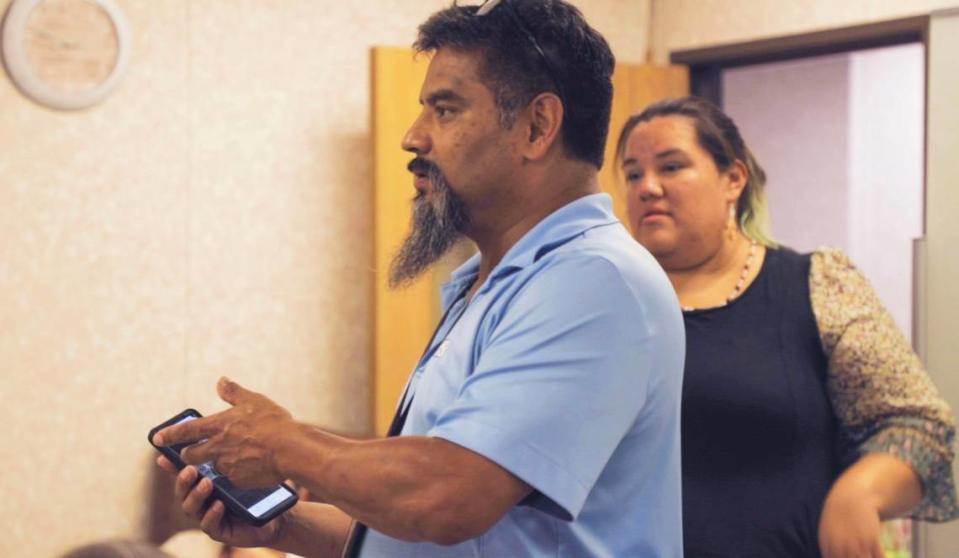
I wandered between classrooms observing students practicing basic phrases and words. I watched expert speakers adapting newer English words into the language by discussing what the translation should be. This was the forefront of Eastern Cherokee salvation, people dedicated to keeping a crucial part of their culture.
As I documented through the afternoon, I spoke to someone who told me that the Cherokee language’s struggle was not a unique issue. Many other Native American tribes had their own languages too, some with far fewer than 150 speakers. He told me of a single couple who were the last remaining speakers of a certain language.
He and another, were part of the team trying to archive old books, videos, and records that were in the Cherokee language.
I strolled into Bo Lossiah’s office. Lossiah informed me of the long history of Cherokee and its language, something that I had grown familiar with throughout the project.
“English was the foreign thing,” Lossiah said during the interview, explaining how the language was different only 100 years ago.
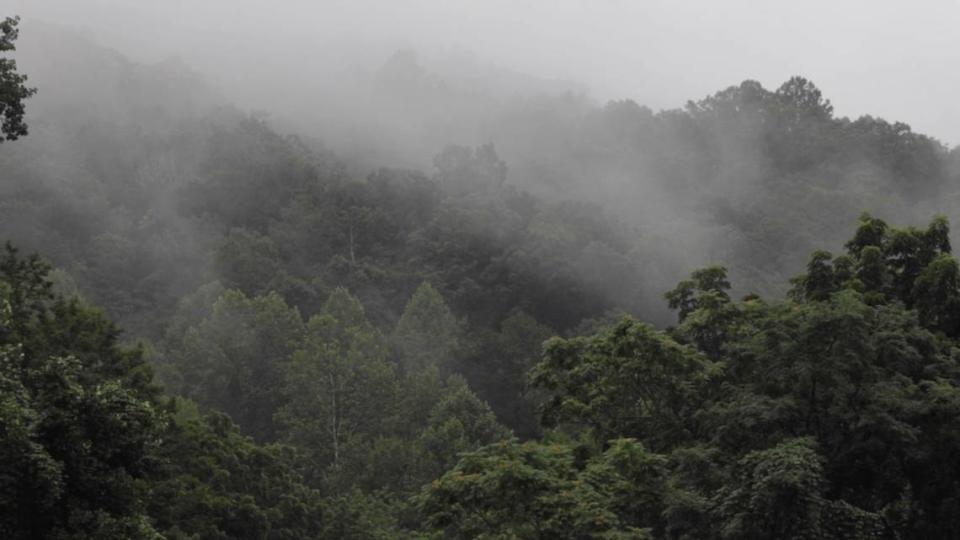
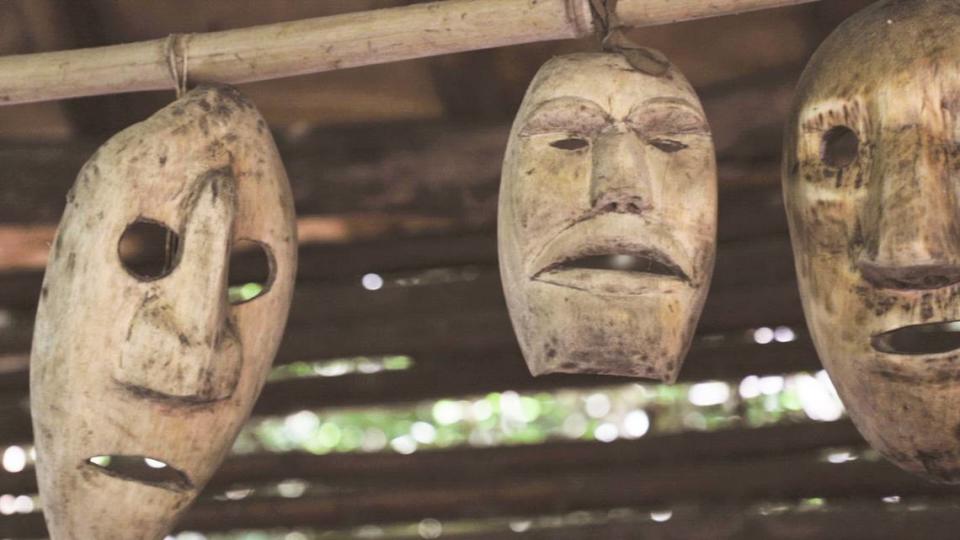
I listened while Lossiah talked about the Kituwah Preservation Program’s classes and methods for teaching Cherokee. He told me the language was growing, and there was promise to what they were trying to accomplish.
“The future, it looks bright,” Tohisgi Climbingbear, a second-year Cherokee teacher, had said earlier to me in an interview echoed in my thoughts.
I believed in Lossiah and Climbingbear. I could see the dedicated community and how it was growing.
Even the first-year students I had observed seemed as dedicated as the fluent speakers. They were trying to keep it alive, clawing back from a dire state.

